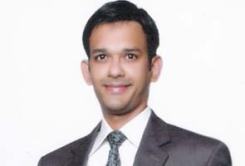POLITICS-PAKISTAN: Long March – A Long View
Analysis by Beena Sarwar

Lawyers and police clash in Lahore - photo by Rahat Dar
KARACHI, Mar 12 (IPS) – Barely a year after being elected, the Pakistan government faces a political storm involving a street agitation spearheaded by lawyers and opposition political parties allied with religious parties.
Lurking on the sidelines is an army unused to civilian command even as religious militants create havoc around the country.
None of this is new to Pakistan but many find it all the more painful given the hopes built up by last year’s general elections. On Feb 18, 2009, Pakistani voters overwhelmingly supported non-religious parties and rejected those that had been propped up by the army.
The electorate’s rejection of the religious parties and the joining hands of the late Benazir Bhutto’s Pakistan People’s Party (PPP) and her former rival Nawaz Sharif’s Pakistan Muslim League-Nawaz (PML-N) raised expectations of an end to political confrontation and religion-based politics – and the army moving away from politics.
These expectations followed decades of misrule and exploitation of religion for political purposes. The Pakistani establishment, at Washington’s behest, strengthened armed militancy, exploiting religious sentiments to drive the Soviets out of Afghanistan during the 1980s. In the process they created ‘Jihad International’, as the late scholar Dr Eqbal Ahmad termed it.
This may now be the biggest threat facing Pakistan – and the world – since the attack on the World Trade Center on Sep. 11 2001. Since then Washington has pushed Islamabad to fight the very forces of militant Islam that both together had fostered and strengthened.
Resultantly, this country has, as Pakistanis point out, suffered the most from militant attacks.
In this situation, political instability is distracting at best and dangerous at worst. The ‘long march’ demanding the reinstatement of chief justice Iftikhar Mohammed Choudhry, spearheaded by the legal fraternity and sections of civil society, has ready allies among the right-wing political opposition.
This includes Sharif’s PML-N and the Jamaat-e-Islami, a mainstream religious party sympathetic to militant Islam, as well as others sympathetic to the Taliban, like ex-chief Inter-Services Intelligence (ISI) and anti-India hawk Gen. (retd.) Hamid Gul, retired bureaucrat Roedad Khan who brutally quashed political opposition during the Zia years, and cricket hero-turned politician Imran Khan, chief of the Tehrik-e-Insaaf (Movement for Justice).
All these forces boycotted the 2008 polls, except Sharif who rescinded his boycott decision after Bhutto convinced him that elections were the only way forward.
Long-festering tensions between the PPP and PML-N came to a head with a Supreme Court ruling of Feb 25 barring Sharif and his brother Shahbaz Sharif from holding elected office. Bhutto’s widower, President Asif Ali Zardari is widely believed to be behind this controversial ruling.
The disgruntled Sharifs, already pushing to restore Chief Justice Choudhry, have flung themselves wholeheartedly into the long march – a move that observers do not see as entirely altruistic since their stated aims include effecting regime change.
“Sharif’s attempts to paint himself as a radical, grassroots activist are at odds with his political origins,” commented former lawyer and Australia-based analyst Mustafa Qadri, writing about the opportunity Pakistan’s politicians of all hues have wasted in their “refusal to look beyond personal power games and provincialism to develop the nation’s still embryonic democracy”.
The Sharifs gained prominence as businessmen patronised by General Zia -ul-Haq who was behind Pakistan’s “transformation from majority-Muslim nation to Islamic state with more conservative religious seminaries per capita than any other country in the world,” as Qadri put it (‘Long march to nowhere’, The Guardian, Mar 10, 2009).
The current imbroglio comes on the heels of loaded statements by Gen. (retd) Pervez Musharraf who during a visit to India last week, gave several talks and interviews in which he hinted at a possible political comeback.
Curiously Musharraf, who stepped down as president in August 2008, urged New Delhi to stop ‘bashing’ the Pakistan army and the shadowy ISI since, according to him, they were the best defence against the growth of the Taliban and militancy in Pakistan.
President Zardari has invited comparisons to Musharraf because of his government’s use of police force and mass arrests to prevent the long march, as Musharraf did after suspending Choudhry in March 2007 and imposing Emergency rule in Nov 2007.
The irony is illustrated by the recent three-hour detention of the firebrand women’s rights and political activist, Tahira Abdullah, who has been mobilising the lawyers’ movement from her home in Islamabad.
She faced police batons and tear gas in the Zia and Musharraf eras. A day before the long march began, a police contingent arrived at her house and virtually broke down her kitchen door.
However, her arrest attracted media attention, embarrassing the government into quickly ordering her release. An undeterred Abdullah immediately resumed mobilising for the agitation.
“It is sad and ironic that the PPP government has come to this,” she told IPS. “They said it was preventive detention. They can’t catch people like (Taliban leaders) Baitullah Mehsud and Maulvi Fazlullah but they send police after me, a very ordinary person.”
There is also irony in progressive, secular activists like Abdullah joining hands with the emerging right-wing coalition to achieve a shared goal, the restoration of Choudhry.
Civil society activists privately admit that otherwise their numbers are too small to reach the critical mass needed to effect political change.
“There are only a handful of us,” one of them told IPS. “And there are no more than 100,000 lawyers in the country. So we have to join hands with political forces who agree with us on this matter even if we don’t agree on other matters. We know they are using us, but we are also using them.”
Observers like the political economist and former student activist S.M. Naseem fear that this kind of mutual ‘using’ could push Pakistan further towards right-wing forces.
Disappointed by the performance of the government as well as the opposition, he holds that the lawyers’ movement has missed the opportunity of creating a new polity in the country. “They should have broadened the agenda to create a new political system,” he told IPS. “Two years for the restoration of one person (Choudhry), however, honest and bold, is a bit too much.”
Prime Minister Yusuf Raza Gillani has said that he cannot, in all conscience, oppose the long march. “We have also participated in street agitations and long marches,” he said. “How can we stop anyone else from exercising their democratic right to do so?”
This stand appears to pit him against President Zardari, holding an office strengthened by past military dictators. The President’s powers include being able to dismiss the prime minister and dissolve government – as several presidents before him have done. This is unlikely to happen now. For Zardari to take such a step would mean dismissing his own government.
Having recently obtained a majority in the Senate, the PPP can conceivably push through the constitutional amendments it proposed in May 2008 for which a two-thirds majority in the National Assembly and the Senate is required. These amendments include the removal of the 17th amendment that allows the President to dismiss government.
Moves towards reconciliation between the PPP and the PML-N continue behind the scenes, even as the long march kicks off with lawyers and political activists from various cities heading towards Islamabad to converge by Mar. 6 for a dharna (or sit-in) ‘until the Chief Justice is restored’.
Observers fear a breakout of violence even though the long march leaders have promised to keep matters peaceful.
(END/2009)
http://www.ipsnews.net/news.asp?idnews=46083
Filed under: Lawyers movement, Politics | Tagged: constitutional amendments, gillani, imran khan, isi, kargil, long march, musharraf, right-wing coalition, tahira abdullah arrested, zardari | Leave a comment »












